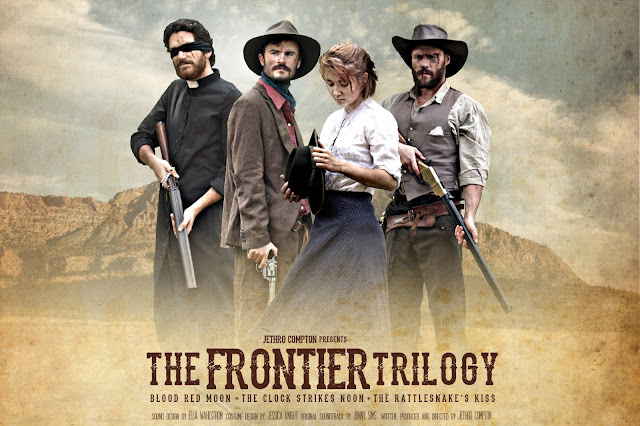1. On a project like The Frontier, what does a Stage Manager actually do?
Its a very varied job! I start out in the rehearsal room with the company and keep whats called the Book. This is a copy of the script in which everything is written from the movements the actors make to what props are needed and where they are kept. Its essentially a blueprint for the show. Once we get up to Edinburgh, I'll be helping with building/dressing the set and sourcing any last minute props. In technical rehearsals, I work with our lovely sound team, Ella and Dylan, to write down the sound cues in the Book. The same goes for the lighting cues decided upon by Jethro. This is also my opportunity to learn how to operate the shows. Once the shows are up and running, I'm in a little earlier to set the props and make sure that the cast are happy to begin.
2. How does it compare to managing a more traditional show?
The main difference is that I can't see what's happening! The nature of these shows is that the audience is totally immersed in the world of The Frontier Trilogy. The set is a room which we will build and decorate to make look like a church in the wild west. Having someone sat in a corner with modern technolgy operating the lights and sound would ever so slightly distract from this! So, I'm set up outside the room listening in for my cues whether they are on actors' lines or doors banging etc. Its very strange at first because I am devoid of one of my senses so I really need to depend on my hearing. It sounds crazy, but it works!
3. How does this affect your role?
I depend on the actors a lot more than I might on any other show. If anything goes wrong in the room like and actor injury or an audience member becoming ill, I need them to be able to let me know. In any other situation, I would be able to see what's going on first hand and make a judgement call on what needs to be done. Fortunately, the group I'm working with are more than able to deal with the worst should it happen – fingers crossed it doesn't!
4. What's the hardest part of the job?
In general with stage management the worst thing is the odd hours I work. My partner and a group of close friends work outside of the industry in "normal" jobs. It makes finding time to spend with them difficult. Its important that I can find people I enjoy spending time with to work with. I can definitely say its true with these guys! One thing that leads from this is that making plans can be a nightmare! As I work freelance, I mostly never know what I'll be doing from one job to the next. But that's equally as exciting as it is daunting!
5. What's been your favourite experience as an SM?
I have been really fortunate to travel with my job and work in some beautiful places like Pieve in Italy and Paris. But my favourite has to have been when I went to Seoul in South Korea with The Bunker Trilogy last year. Having never been to Asia before, it was such a treat to be able to go there to work on one of my favourite shows. The people, the food – not the spicy food! - and the city were simply amazing and I'd go back in a heartbeat!
6. What advice do you wish you'd been given when starting out as an SM?
The most improtant piece of advice I've ever been given about work was this nugget of knowledge from Mammy Bolger - Don't expect people to coming knocking on your door to offer you work. No one knows how great you are unless you tell them so don't be afraid to.
The Frontier Trilogy opens in Edinburgh at the Fringe this summer. For tickets and more info, click here.




